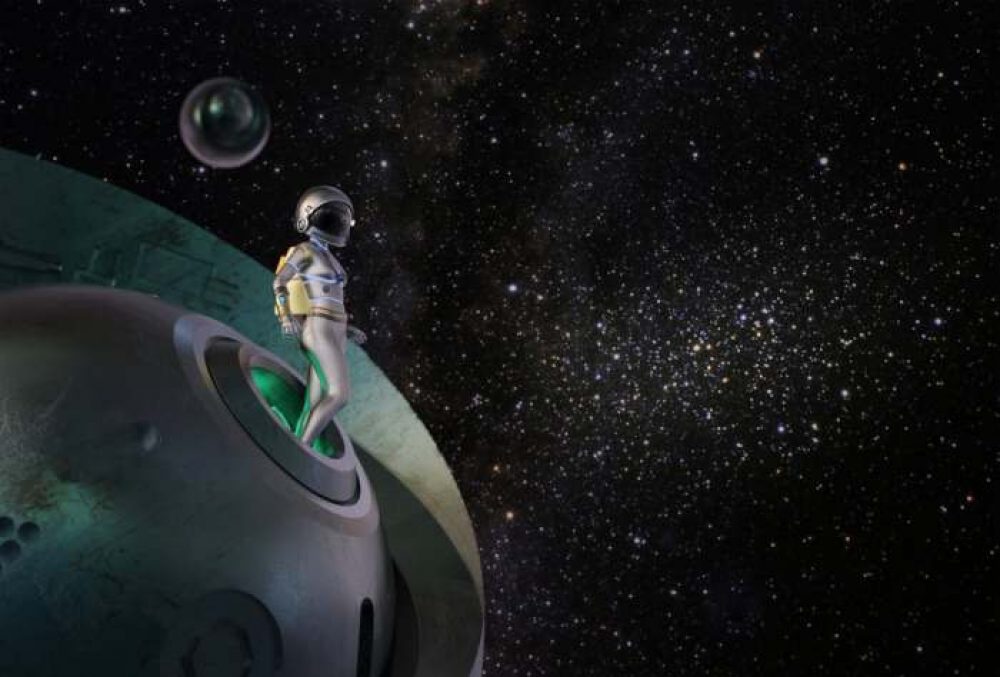
2001: a Space Odyssey: 25th Anniversary Edition (Space Odyssey Series)
26 used from $2.55
Free shipping
Arthur C. Clarke’s sci-fi fan-favorite classic marked its 50th anniversary a few years ago. First published in 1968, 2001: A Space Odyssey became an instant game-changer for the science fiction genre as a whole. Up until that point, sci-fi novels, films, and other bodies of works were largely ignored.
Then the duo of cultural powerhouses – filmmaker Stanley Kubrick and author Arthur C. Clarke – joined hands to create a breathtaking, metaphysical, and downright work of science fiction art that posits the themes of artificial intelligence, evolution, a little bit of religion, and the existence of extraterrestrial life-form in the galaxy. The result is 2001: A Space Odyssey.
Funny enough, the novel was spawn from The Sentinel, a short story the novelists had whipped up earlier on. It’s the story in which an alien artifact is stumbled upon on the moon, kicking off a series of manned expeditions throughout the galaxy. First, mankind builds a space station that orbits the earth, where they launched crews far out into deep space and once unexplored corners of the solar system – the next launch is set for planet Saturn.
The discovery of a strange monolith buried by the aliens on the lunar surface will bear far-reaching consequences for the shipmates of the Discovery which is on its way exploring the underbelly of the solar system. When Dr. Floyd and his team of astrophysicists were studying the monolith, it was kissed by sunlight and it immediately sent out a radio transmission to Lapetus, one of the clusters of moons orbiting Saturn.
This prompts the scientists to do further investigation, which involves another urgent mission to the moon. The series of missions ends up discovering the existence of an alien life-form in the solar galaxy. The discoveries and adventures that followed make 2001: A Space Odyssey one of the best novels and evergreen reads of all time.
You may not be able to truly appreciate the genius of this novel until you realize that it was authored before the infamous moon landing. It changed not only sci-fi as a genre but also completely transformed the way we look at our solar system.
This novel is unbelievably prophetic, compulsive, and brilliant. It beautifully addresses the themes of technology’s and humankind’s place in the galaxy. Clarke uses the emotional impact of outer space discovery as a landmark achievement in narration.
Clarke expertly and calmly digs into the philosophical themes, such as humankind’s role in the universe and what the discovery of extraterrestrial life-form might mean for the human race. The novel might lack the action that the later installations will feature, but it’s bursting at the seams with plot twists, enlightening moments, and hard science.
It starts a little slow and dry for modern sci-fi readers, but then it picks up pace as the story changes from being character-driven to concept-driven. Clarke teases the reader with the creation of a far-future story, in a deliberate manner to trap us in with the protagonist as he drifts through this extraterrestrial panorama in total ignorance of what has already been accomplished a long time ago.
In this book, the author surprisingly manages to predict the arrival of a manned space station. Even more fascinating is his prediction that the staff would use an electronic pad to check what’s happening across the globe.
In saying so, 2001: A Space Odyssey is, thus, much more than a mission to the solar galaxy that goes awry, or a somber presage of artificial intelligence. In essence, it is a tale of humankind’s progressive quest to discover what lies beyond the horizon, as well as the role of the human race in the universe.
As you progress more and more into the story, you’ll notice that Clarke simply reports the events without adding too much drama. This kind of precise writing and description gives 2001: A Space Odyssey the serious attention it deserved in an era when science fiction was often regarded as garbage in favor of romance, adventure, and fantasy.
When all’s said and done, 2001: A Space Odyssey is a solid choice for anyone thirsting for yet another science fiction classic that won’t bog you down like the vast majority of post-apocalyptic fiction novels being touted today. It’s a great recommendation for newbies trying to wrap their heads around the galaxy’s existential questions. Longtime HAL fans will also find this title refreshing.


 Amazon.com
Amazon.com 







